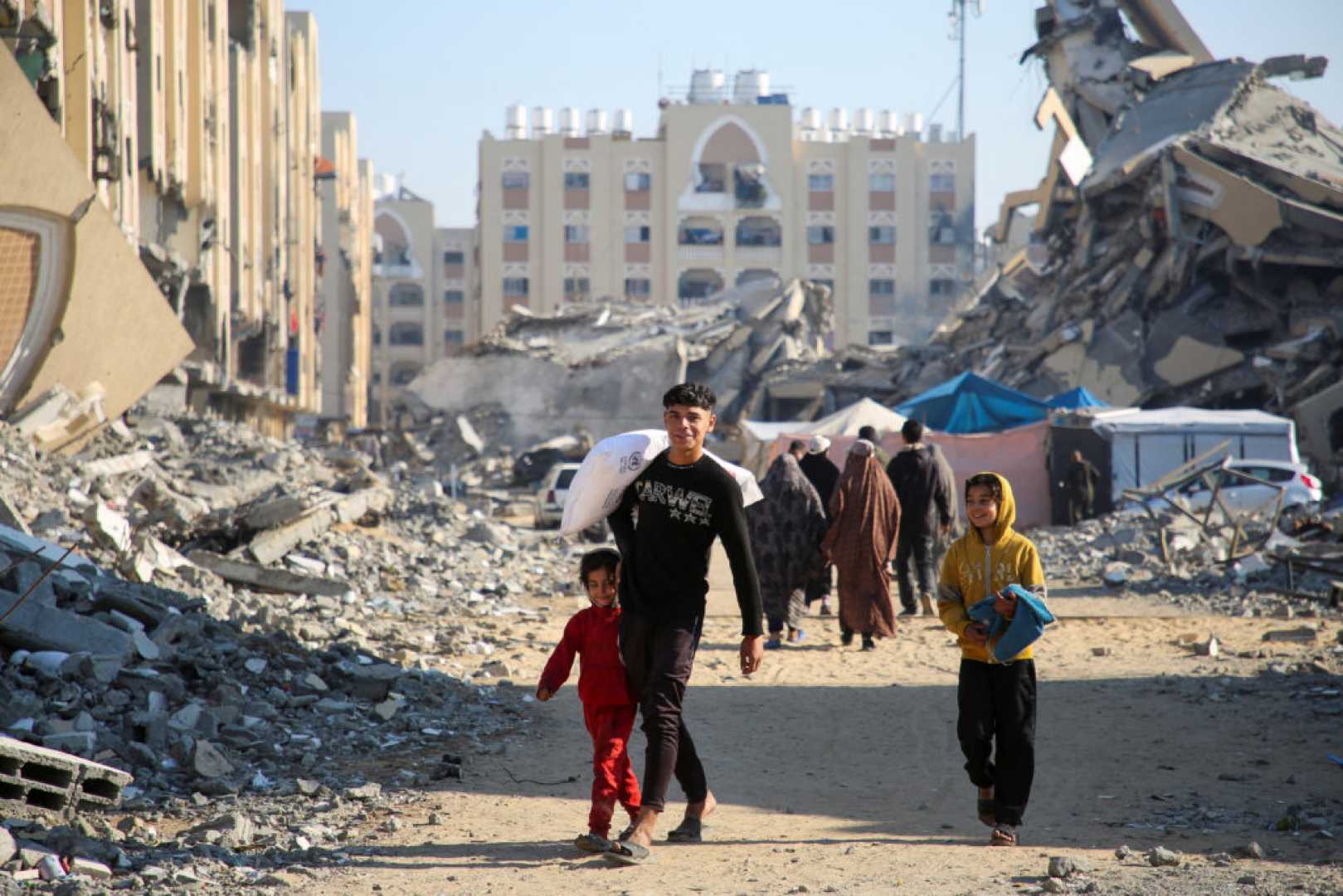World
Ceasefire Agreed as Aid Efforts for Gaza Begin

JERUSALEM, Israel — UK Foreign Secretary Yvette Cooper announced discussions to restart health services and aid delivery to the Gaza Strip following a newly agreed ceasefire. Speaking on BBC Breakfast, Cooper emphasized the need to completely end the fighting and secure the release of hostages.
The UK government plans to engage with Jordan and Egypt to raise funds for rebuilding efforts in Gaza. Cooper stated that the UK has supported U.S. initiatives aimed at concluding the conflict over recent months, while ruling out the deployment of UK troops to monitor the peace process.
In Gaza, residents await news about returning home after being displaced. Images depict Israeli troops beginning a partial withdrawal from the area, marking a significant moment after the Israeli government approved the ceasefire overnight.
The ceasefire was expected to commence immediately following government approval. However, reports indicate ongoing airstrikes and artillery fire in Khan Younis and the Netzarim corridor as of Friday morning, with smoke rising from multiple locations across the region.
Alice Cuddy, reporting from Tel Aviv, spoke to individuals in Hostages Square who are processing the ceasefire deal. Rafi Rabinovitz, 71, expressed disbelief over the agreement. “It’s come to a point that I thought it would never come to,” he said, hopeful that it leads to peace. Meanwhile, Limor Lerman noticed a vibrant atmosphere as people gathered to pray and celebrate.
Meanwhile, Ben Saul, a UN special rapporteur, warned that while relief is felt regarding the end of violence, the ceasefire plan is complex and requires cooperation from Hamas and Israel. Without clear timelines and accountability measures, he warned of potential future conflict.
In Gaza, the mood shifted from celebration to uncertainty as Israeli forces adjust their presence. Residents reported an armed vehicle presence near areas expected to be evacuated, leading to confusion about when the truce would take effect. Mohammed Imad al-Din, a local barber, described his distress over looting attempts during this tumultuous time.
Suha Shaath, a pharmacist currently living in a tent in Khan Younis, recounted the dire conditions of life in Gaza post-announcement, highlighting extreme difficulties in accessing basic food supplies. “The only advantage of this agreement is that it stops the killing,” she noted.
The ceasefire agreement included provisions for a monitored withdrawal of Israeli troops, the release of Israeli hostages, and increased humanitarian aid. The next steps involve achieving broader regional cooperation and addressing critical issues remaining in the peace process.
Australia’s Prime Minister Anthony Albanese welcomed the breakthrough in Gaza, noting the need for peace and resolution on a two-state solution. As the situation evolves, the international community continues to observe developments with cautious optimism.












